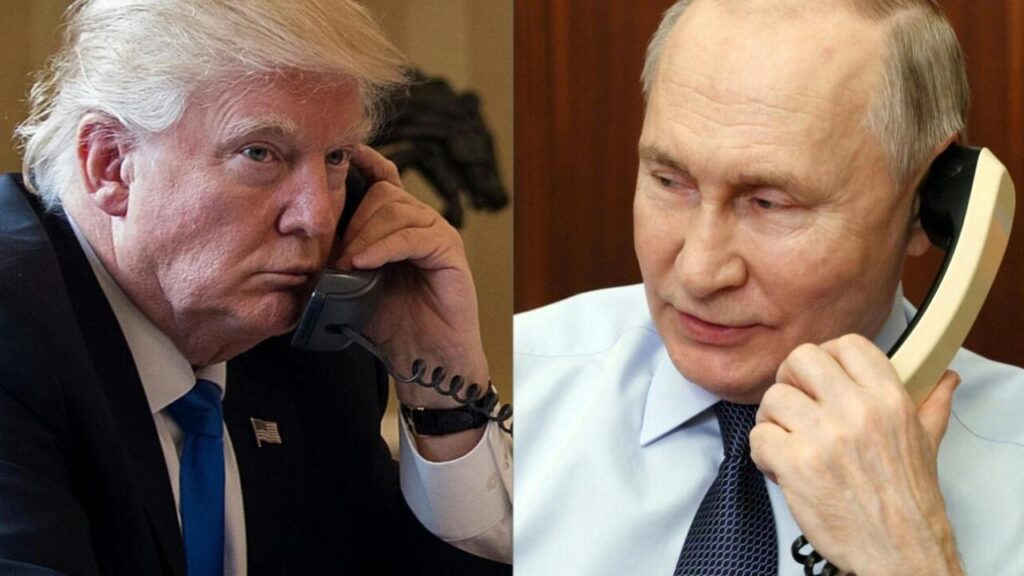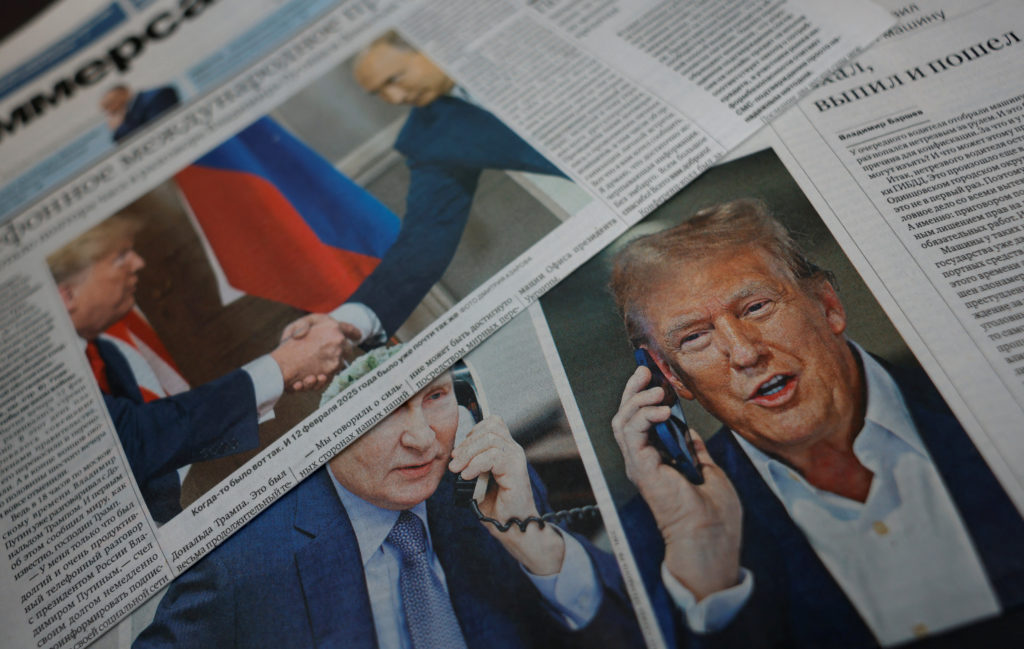In a surprise phone call on June 14, Vladimir Putin and Donald Trump confronted the specter of a wider Middle East war. Their unexpected 30-minute chat revealed not just shared concerns—but a possible diplomatic shift at a critical moment.

Middle East on Edge: What Putin and Trump’s Sudden Conversation Revealed
| Topic | Insight |
|---|---|
| Escalation | Iran launched over 150 missiles after Israeli strikes |
| Call Agenda | Trump: “He feels, as do I, this war should end.” |
| Ukraine | Ukraine conflict discussed briefly; more talks next week |
| Mediation | Putin offered to mediate between Israel and Iran |
Trump and Putin’s June 14 phone call may have looked like a diplomatic oddity—but it revealed deep concerns about a Middle East spiraling toward open war. The next few weeks will show whether this rare moment of alignment turns into meaningful de-escalation—or whether it was too little, too late.
A “Birthday” Call with Global Stakes
The Kremlin said Putin reached out to Trump “to wish him a happy birthday.” But the call quickly veered into global crisis territory.
Speaking at a fundraiser that evening, Trump revealed, “He feels, as do I, that this war between Israel and Iran should end.”
The call came just one day after Israel carried out a series of devastating airstrikes on Iranian nuclear and military sites. According to Western intelligence, at least two high-ranking Iranian commanders and a senior nuclear scientist were killed.
Iran’s response, dubbed Operation True Promise III, included more than 150 ballistic missiles and over 100 drones targeting Israeli bases and cities—marking the most intense confrontation between the two countries to date.
Putin’s Pitch: Russia as Peacemaker?
In a public statement, the Kremlin confirmed that Putin criticized the Israeli strikes and called for “a swift de-escalation” in the region. He also reportedly offered to serve as a mediator between Israel and Iran, reflecting Moscow’s desire to regain diplomatic relevance in the Middle East.
Putin’s office emphasized “the need for restraint by all parties,” while also hinting at the geopolitical leverage such a role could bring.
Meanwhile, Trump floated the idea of resuming nuclear negotiations with Tehran if hostilities subside. He mentioned real estate investor Steve Witkoff, his new unofficial Middle East envoy, is exploring backchannel talks.

Diplomacy, or Damage Control?
From the outside, the call looked like a classic diplomatic dance—former rivals exchanging polite phrases. But analysts say it’s more than that.
“It’s rare for a former U.S. president and a sitting Russian leader to coordinate like this,” says Laila Shadid, a Middle East policy fellow at Brookings. “The urgency tells us they know this conflict could get out of control—fast.”
Indeed, the timing couldn’t be more tense. Just hours before the call, Iranian state TV vowed that any further Israeli aggression would be “met with a response that shatters their red lines.”
Oil, Shipping, and Shifting Alliances
The fallout from the Israel-Iran clash is being felt far beyond the region. Oil prices spiked more than 10% following Israel’s airstrikes, and maritime insurers reported rising risk premiums for shipping through the Strait of Hormuz.
U.S., U.K., and French naval vessels have reportedly been placed on high alert, raising fears of a wider conflict drawing in global powers.
“Even if this doesn’t become a regional war,” says retired Admiral James Stavridis, “we’re entering a phase where every move affects everything—markets, diplomacy, security alliances.”
Looking Ahead: Is a Ceasefire Possible?
Neither Iran nor Israel has shown signs of backing down. But the Trump–Putin call could be the first hint of a coordinated diplomatic push, especially with the G7 summit just days away.
Putin indicated that deeper talks on Ukraine would resume next week, but downplayed that issue in favor of Middle East discussions.
If nothing else, the call demonstrated a rare moment of agreement: even geopolitical opposites know that a full-blown war between Israel and Iran would be catastrophic—not just for the region, but for the world.
FAQs
Is there a ceasefire between Israel and Iran?
No. As of mid-June 2025, Iranian strikes are ongoing and no ceasefire has been agreed to.
Did Putin offer to broker peace?
Yes. The Kremlin says Putin is willing to mediate, but no formal talks have started.
Has Trump re-entered Middle East diplomacy?
Unofficially, yes. He’s deployed longtime associate Steve Witkoff to explore channels with Iran and Israel.






